Drivers over 70 are keeping their licenses longer and driving more than earlier generations, a trend that has led to dire predictions about car accident risks for aging baby boomers.
But new research from the Insurance Institute for Highway Safety should ease those fears. It shows that fatal car accidents involving older drivers have actually declined markedly in the past decade.
“It’s not what people had expected to see,” said Anne T. McCartt, senior vice president for research at the insurance institute. “There were some studies, including our own research, that had predicted older driver crashes would become a bigger and bigger problem.”
Compared with middle-aged drivers (age 35 to 54), drivers 75 or older have far higher death rates per mile traveled. (So do drivers under 20.) Death rates jump markedly after age 80. But that does not necessarily mean that older people are worse drivers or that they are far more likely to crash.
Car fatalities involving young people are almost entirely explained by the fact that they have more accidents than experienced drivers. But while crash rates are slightly higher for older people, most of their increased risk for a fatal car accident is explained by the fact that they tend to be more frail. Older drivers are more likely to suffer a severe injury, particularly to the chest, or other medical complications.
But fatalities per capita among older people have decreased 35 percent since 1975 and are now at their lowest level. And while fatal crashes are declining over all, the rates for older driving deaths are falling the fastest. Between 1997 and 2006, the annual decline in fatal crash rates was 0.18 fewer fatal crashes per 100,000 middle-aged licensed drivers. By comparison, the annual decline for drivers age 70 to 74 was 0.55 fatal crashes per 100,000 licensed drivers, and for those over 80 it was 1.33.
Older drivers are also less likely to cause drunken driving accidents. In 2007, just 6 percent of drivers 70 and older who died in crashes had blood-alcohol levels above the legal limit. The figure for fatally injured drivers age 16 to 59 was 41 percent.
The insurance institute is conducting further research to determine why the risks appear to be going down for older drivers. It may be that today’s older drivers are simply in better physical and mental shape than their counterparts a decade ago, so they are not only less likely to make a driving mistake, but also less frail and better able to survive injuries.
It may also be that driving patterns among older adults have changed, leading to more highway driving, which is safer than driving on local roads. Older drivers may be more likely than in the past to wear a seat belt or to drive a safer car.
Research suggests education campaigns have increased awareness about older driving risks.
Researchers from Johns Hopkins recently reported results of the Salisbury Eye Evaluation and Driving Study (Seeds for short), which looked at vision, cognition and health changes among 1,200 licensed drivers age 67 to 87. The study, published in the journal Investigative Ophthalmology & Visual Science, found that after a year 1.5 percent of the drivers had given up driving on their own, and 3.4 percent more had voluntarily restricted their driving because of declining vision.
“We’re intent on doing research to try to figure out why we’re seeing this,” Dr. McCartt said. “It’s certainly a possibility that older drivers compared to 10 or 20 years ago are in better condition in various ways.”


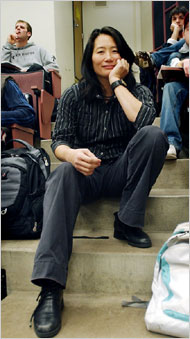
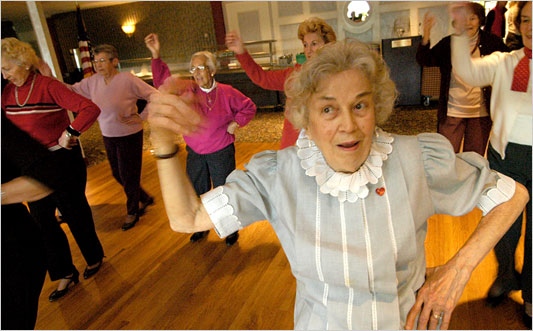
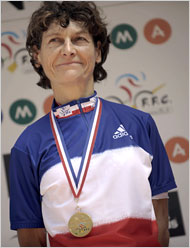
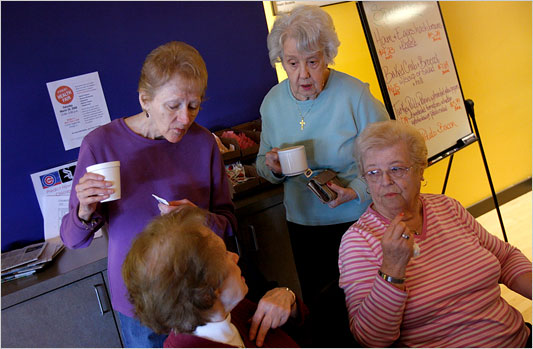
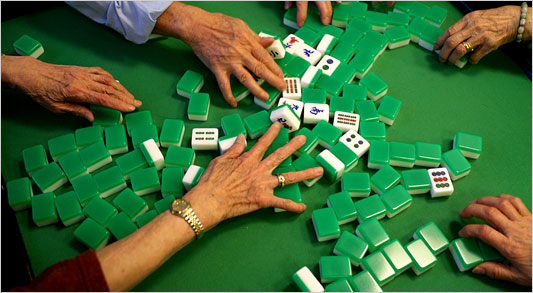
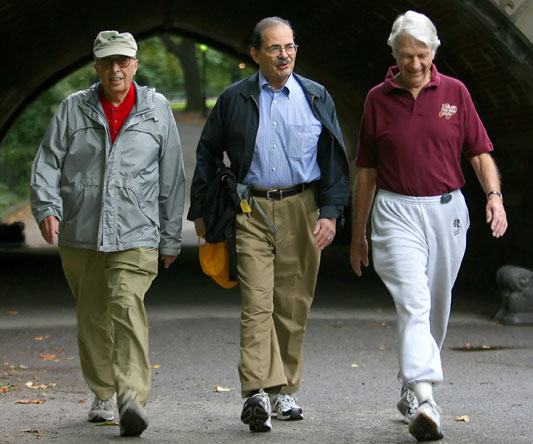

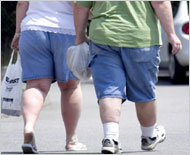









 Healthy living doesn't happen at the doctor's office. The road to better health is paved with the small decisions we make every day. It's about the choices we make when we buy groceries, drive our cars and hang out with our kids. Join columnist Tara Parker-Pope as she sifts through medical research and expert opinions for practical advice to help readers take control of their health and live well every day. You can reach Ms. Parker-Pope at
Healthy living doesn't happen at the doctor's office. The road to better health is paved with the small decisions we make every day. It's about the choices we make when we buy groceries, drive our cars and hang out with our kids. Join columnist Tara Parker-Pope as she sifts through medical research and expert opinions for practical advice to help readers take control of their health and live well every day. You can reach Ms. Parker-Pope at 

